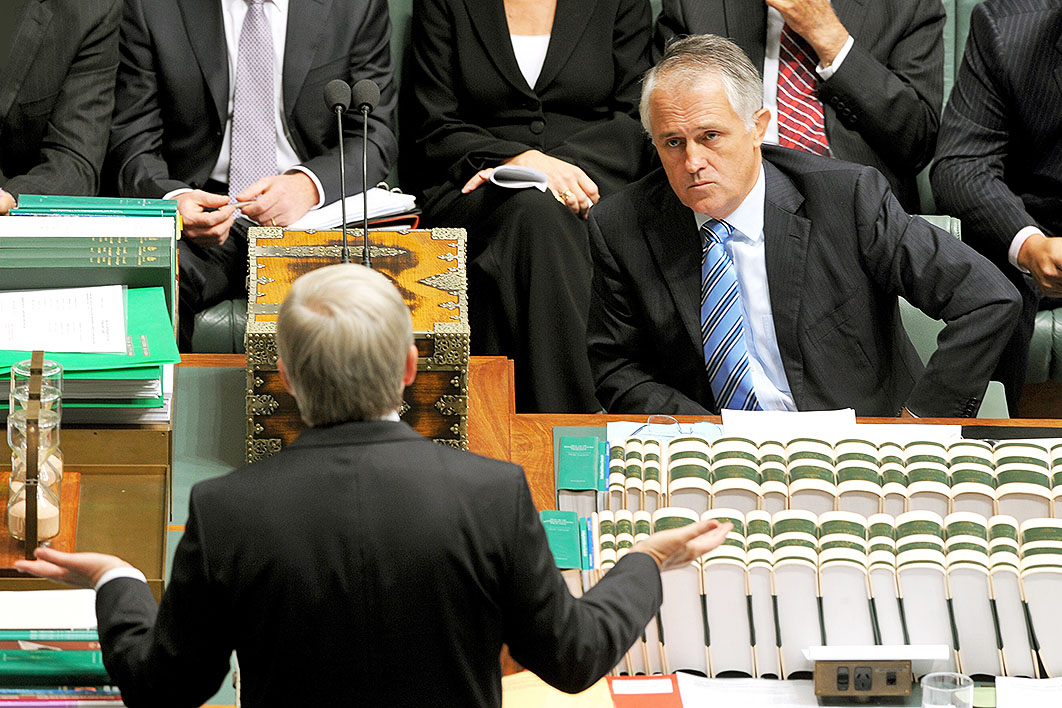The Coalition government’s massive cash splash, designed to curb the monumental recession being induced by its (and other countries’) restrictions, has turned a lot of political commentary on its head. Already dwarfing the Rudd government’s response to the global financial crisis, the stimulus has been characterised as a departure from the Coalition’s traditional centre-right orthodoxy.
But that’s only partly true.
It was a Republican president, Richard Nixon, after all, who apocryphally coined the phrase “We are all Keynesians now.” (It was actually Milton Friedman, no fan of big government.) The idea that a government would respond to a severe downturn by cutting spending to keep the budget in balance — as many, including Australia’s, did during the Great Depression — is now unthinkable for anyone remotely in the mainstream.
The new thinking applied to the GFC. Back in February 2009, when the Rudd government was pushing its second stimulus package through parliament, I wrote that the Malcolm Turnbull–led Coalition opposed it for “the same reason overseas centre-right opposition parties — the Conservatives in Britain and the Republicans in the United States — voted against stimulus packages proposed by their centre-left governments. It made sense politically.”
Furthermore:
in countries where centre-right parties are in power — Canada, for example, and New Zealand, Germany and France — stimulus packages are going ahead. Governments of all stripes are doing it. It’s what the International Monetary Fund wants and it sits firmly in Contemporary Orthodox Economics 101.
If the Coalition had been in government back then, it would have stimulated (beyond that first round of “cheques,” which received bipartisan support) and the budget would’ve gone into whopping deficit. (Actually, that would’ve happened even without stimulus.) The Coalition might not have spent as much, although from today’s vantage point that’s a fifty–fifty proposition.
Yes, they pretended they wouldn’t have splashed cash — or only a bit, with tax cuts — or that the downturn was hermetically restricted to the northern hemisphere (former prime minister John Howard’s line at the time), but that was just politics. The smart ones knew they were talking nonsense, though maybe not the foot soldiers, the wider movement and its supporters. You know, the folks in the mainstream and social media who internalise and reproduce the daily line — all parties have them.
Today there’s a strong reaction against the Morrison government’s strategy from some people in those same quarters. The head of the left-wing Australia Institute showering praise on the government in the Murdoch press is like a red rag to a bull. This bit from Ben Oquist in the Australian was particularly cheeky:
People advocating for a more progressive society are always confronting arguments that their proposal cannot be supported because it would “hurt the economy.” So when a prime minister so swiftly and emphatically puts economic interests behind the health and wellbeing of the population it means something profound has finally shifted.
That must’ve set hundreds of thousands of conservative teeth on edge.
Interestingly, most of the pushback takes the form of denialism about simple laws of mathematics — a refusal to believe that the lockdown is responsible for the curve turning downwards (it would’ve happened anyway, says one) — rather than objections about the economic measures. Old habits, from the climate change wars, seem to die hard.
Is it just me, or has Scott Morrison’s demeanour changed over the last week or so? Are glimpses of that snarling tough-guy persona when he was immigration minister (2013–14) seeping through? To reassure the self-proclaimed base, perhaps? Or maybe he’s just tired. But the recent warnings about robust pro-business policies to push growth after the lockdown — deregulation and tax cuts have been mentioned, and that piping hot political potato industrial relations is at least implied — are partly aimed at placating the troops.
The dreams of some on the left, that we will emerge a permanently big-spending nirvana, are certainly going to be dashed, but does the size of the stimulus spell the end of the Australian political class’s surplus fetish? (An interesting side question is whether Malcolm Turnbull as prime minister could have spent that much without provoking a revolt.)
Now is not a time to confuse debt with deficit. We’ll emerge from this crisis with net debt at least doubled, but the next election is quite a while away and much of the stimulus spending can be brought to a speedy conclusion. Depending on how the world economy rebounds, it’s not beyond the realms of possibility that the government will bring down a balanced or surplus budget for 2022–23.
Just in time for the next election. And just like at the last one. •





